#revitalizes
Explore tagged Tumblr posts
Text




guess who finally caved and made their own tf redesigns
I'll be tagging this as "Transformers Revitalized AU" it's simply your typical everyone lives no one dies au mostly so I can freely goof around with the characters.
post war type beat, everyone tries to just kind of heal from it the best they can and reconcile with old friends
(megan is an author in this one :>c)
individual images vvv















#Transformers Revitalized AU#trashy art#transformers#transformers g1#transformers idw#transformers fanart#maccadams#character design#redesigns#swindle#jetfire#skyfire#skywarp#thundercracker#starscream#shockwave#soundwave#rumble#frenzy#megatron#optimus prime#bumblebee#ratchet#drift#jazz#prowl#I might design more in the future
5K notes
·
View notes
Text
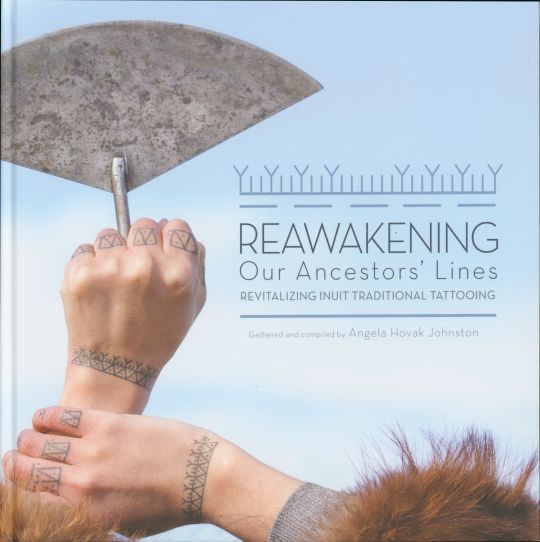
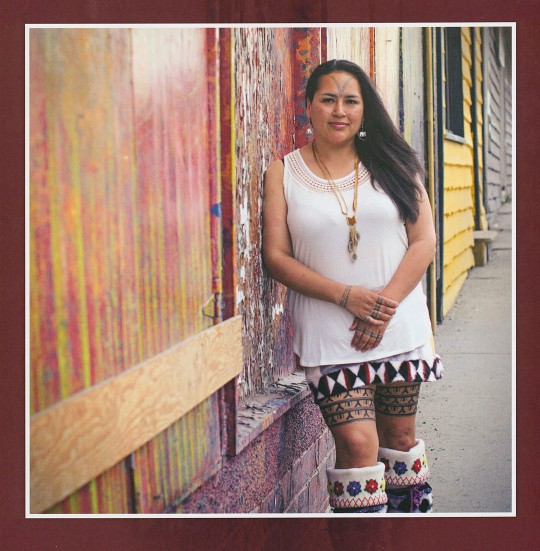
The author, Angela Hovak Johnston.

Johnston and Marjorie Tungwenuk Tahbone, traditional tattoo artist.
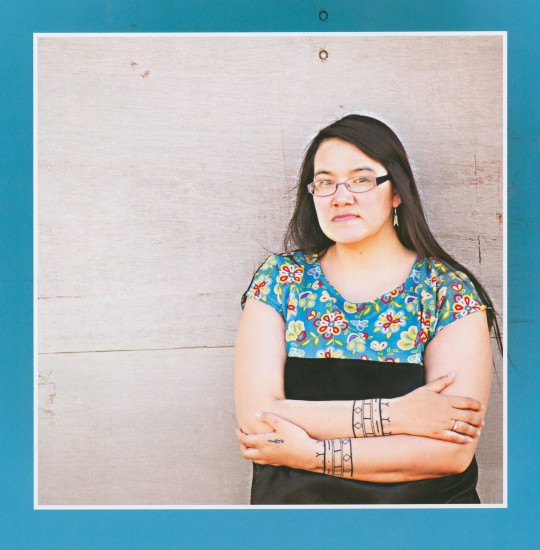
Catherine Niptanatiak: "I designed my own, something that represents me and who I am, something that I would be proud to wear and show off, and something that would make me feel confident and beautiful. . . . I have daughters and I would like to teach them what I know. I would like for them to want to practice our traditions and keep our culture alive."
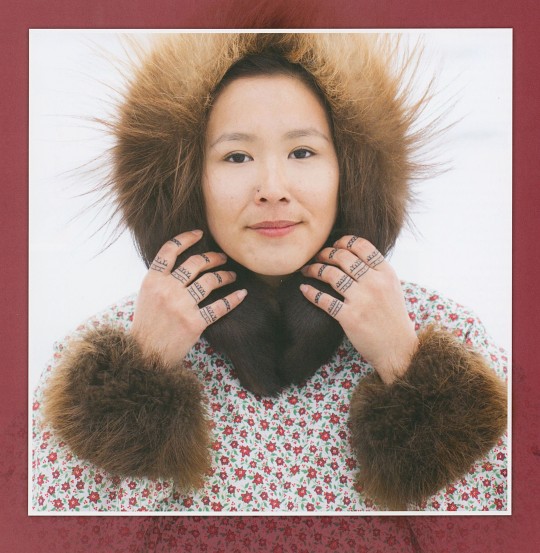
Cecile Nelvana Lyall: "On my hand tattoos, from the top down, the triangles represent the mountains. . . . The Ys are the tools used in seal hunting. . . . The dots are my ancestors. . . . I am so excited to be able to truly call myself and Inuk woman."
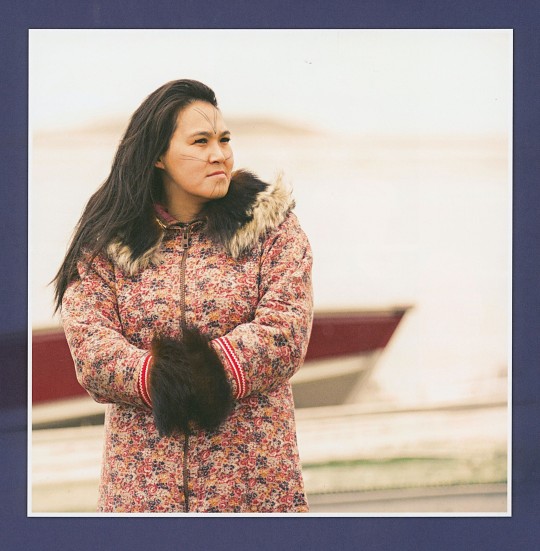
Colleen Nivingalok: "The tattoos on my face represent my family and me. The lines on my chin are my four children -- my two older boys on the outside protecting my daughters. The lines on my cheeks represent the two boys and the two girls on either side. The one on my forehead represents their father and me. Together, we live for our children."
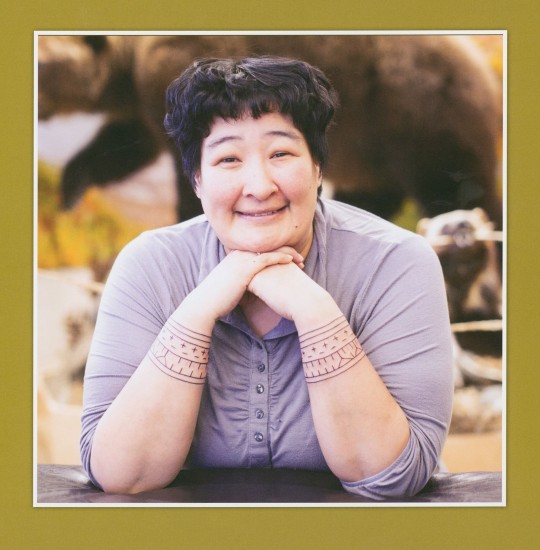
Doreen Ayalikyoak Evyagotailak: "I have thought about getting traditional tattoos since I was a teenager. . . . When I asked the elders if I could have my own meaning for my tattoos, they said it wouldn't matter. My tattoos symbolize my kids."
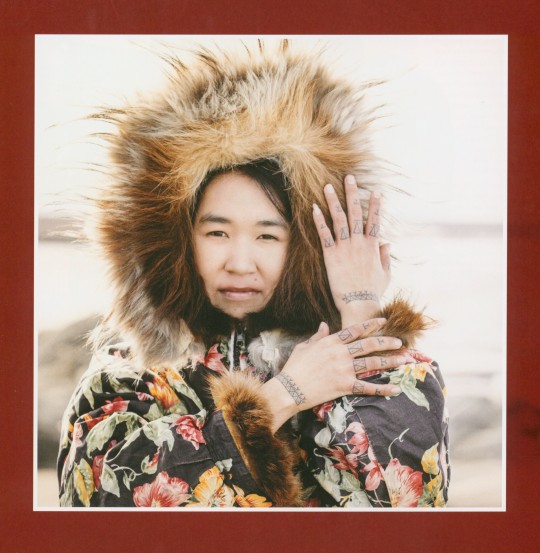
Mary Angele Takletok: "I always wanted traditional tattoos like the women in the old days. I wanted them on my wrists and my fingers so I could show I'm Inuk."
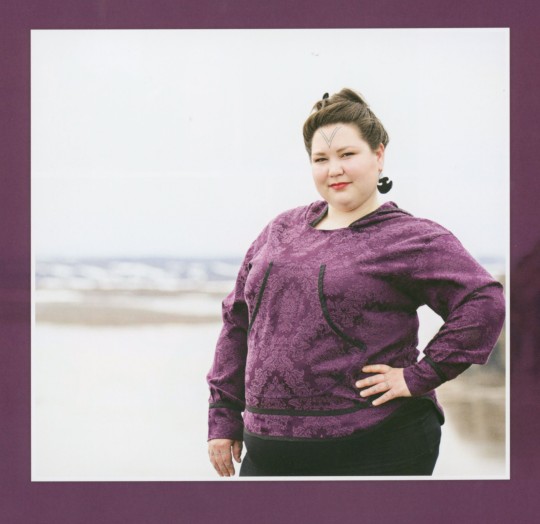
Melissa MacDonald Hinanik: "As a part of celebrating my heritage and revitalizing important traditional customs that form my identity, I believe I have earned my tattoos. I am a beautiful, strong young woman. I am a mother, a wife, a daughter, a friend, and an active community member. I reclaim the traditional customs as mine, I re-own them as a part of who I am."
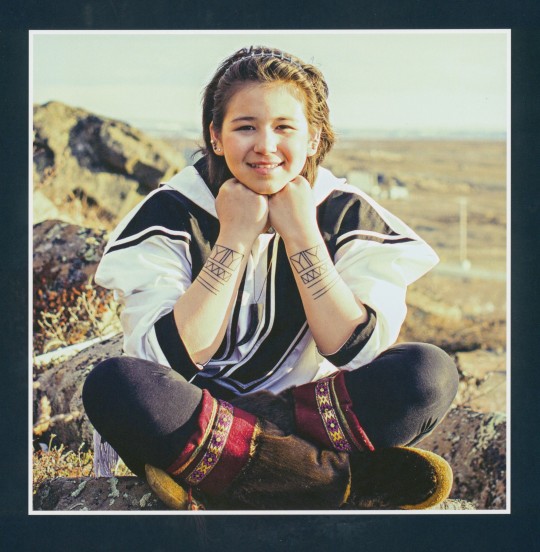
Star Westwood: "We still have some of our culture, but some things are slowly dying. Having tattoos helps us keep our culture alive. . . . . My tattoos represent my dad and my dad's dad. The ones closest to my wrists represent my sisters."
------------------------------------------------------------------------------
National Tattoo Day
July 17 is National Tattoo Day. To celebrate, we present some images from Reawakening Our Ancestors' Lines: Revitalizing Inuit Traditional Tattooing, compiled by Angela Hovak Johnston, co-founder with Marjorie Tahbone of the Inuit Tattoo Revitalization Project, with photographs by Inuit photographer Cora DeVos, and published in Iqaluit, Nunavut by Inhabit Media Inc. in 2017.
For thousands of years, Inuit have practiced the traditional art of tattooing. Created the ancient way, with bone needles and caribou sinew soaked in seal oil, sod, or soot, these tattoos were an important tradition for many Inuit women, symbols etched on their skin that connected them to their families and communities. But with the rise of missionaries and residential schools in the North, the tradition of tattooing was almost lost. In 2005, when Angela Hovak Johnston heard that the last Inuk woman tattooed in the old way had died, she set out to tattoo herself in tribute to this ancient custom and learn how to tattoo others. What was at first a personal quest became a project to bring the art of traditional tattooing back to Inuit women across Nunavut.
Collected in this book are photos and stories from more than two dozen women who participated in Johnston's project. Together, these women have united to bring to life an ancient tradition, reawakening their ancestors' lines and sharing this knowledge with future generations. Hovak Johnston writes: "Never again will these Inuit traditions be close to extinction, or only a part of history you read about in books. This is my mission."
Reawakening Our Ancestors' Lines forms part of our Indigenous America Literature Collection.
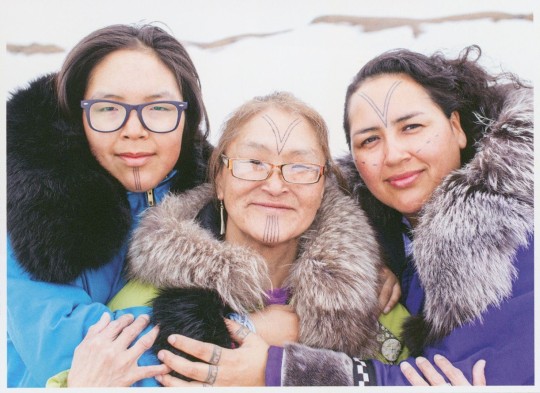
Angela Hovak Johnston (right) with her cousin Janelle Angulalik and her aunt Millie Navalik Angulalik.
View other posts from our Indigenous America Literature Collection.
#National Tattoo Day#tattoos#holidays#Inuit traditional tattoos#Inuit tattoos#Inuit#Inuk#Reawakening Our Ancestors' Lines#Angela Hovak Johnston#Cora DeVos#Cora Kavyaktok#Marjorie Tahbone#Inuit Tattoo Revitalization Project#Inhabit Media Inc.#photographs#Inuit women#Indigenous America Literature Collection#Native American Literature Collection
3K notes
·
View notes
Text
GUUUUUYS
REQUESTS IN MY TIKTOK OPEN‼️‼️
and my tiktok is also open now, I post things there :D same nickname pitsazawr(@maplezawr)
like this👇👇


#I'm glad to be able to draw on my tablet again#it really revitalizes me#and these two too#an extremely goofy movie#max goof#bradley uppercrust iii#maxley#max x bradley#bradley x max#my art#sketch#fanart#digital art#artists on tumblr#goofy movie
2K notes
·
View notes
Text

Luo Binghe? Sorry, I only know Binghorse now.
#poorly drawn svsss#svsss#luo binghe#shen qingqiu#binghorse#Long time no Scum Villain art! I missed drawing them!#Binghorse stole my heart...The most evolved form of the Svsss skin creature to exist. I love this community's creativity.#Luo Binghe is the horse boy of all time. Looks handsome. Could kick you to death. Paradoxically fragile.#This art came about as I was slumped in a miserable (sick) heap -#- knowing I needed to draw something but lacking the energy to do a comic. Despairing another missed day of uploading.#When suddenly...Binghorse appeared in my mind. My energy returned. My mission was clear. I had to draw him.#This was nothing short of a true revitalization of creative passion. Praise be to binghorse. Hairlessness truly is holiness.#In my defense I can't swallow my own spit without it feeling like shards of glass right now. Let me have my delirium moment.
835 notes
·
View notes
Text

Learning Emmrich's face! Did a little sketch page to try and get a feel for things!
#fanart#gabe art#illustration#dragon age#dragon age fanart#dragon age the veilguard#datv#dragon age veilguard#dragon age: the veilguard#da:tv#emmrich volkarin#dragon age emmrich#this man is revitalizing the crush i had on Vincent price at 14 already.....#i am Afraid of who I'm going to become when i can smooch everyone for real
536 notes
·
View notes
Text
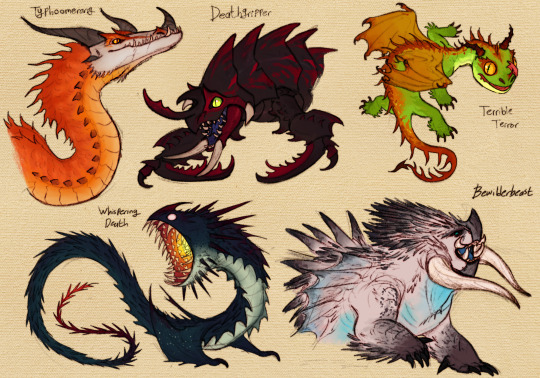
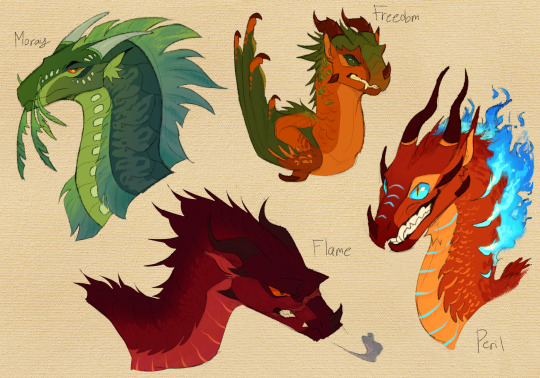
done with the requests, really had fun with the httyd ones specially, thank you all!
tagging the users that requested
@aposterous @avianreptiles @sapphofinch @helsingvania @morp @crypticcrab @bi-pan-whiteout @kratt09 @lynxfrost13 @icecreamsodaaaaa
#wings of fire#wof#httyd#how to train your dragon#moray wof#peril wof#flame wof#freedom wof#typhoomerang#death gripper#terrible terror#bewilderbeast#whispering death#art#GRAH. god drawing httyd after so long was so revitalizing istg#especially since the person who requested the bewilderbeast said to redesign it slightly as a lil challenge i had funnn#like thank god im not the only one bothered by the face :sob: made the deathgripper a biiiit more bug-like#also on peril i think she's described once or twice to have like. really unsettling smile/eyes ?
2K notes
·
View notes
Text
I have added English subtitles to this video posted by Helena Sotoca on Instagram. She's from Madrid (Spain) but has been living in Catalonia for 7 years. As she explained in another video, she didn't learn any Catalan the first 3 years she lived here, but then realised how she was imposing Spanish on her group of Catalan friends and how important it was for her friends to keep their language, so she learned it. She is very happy about this decision which has allowed her to integrate more in Catalan society and culture.
In this video, she gives her personal opinion on why languages are not only "a way to understand each other". This sentence is something that we speakers of discriminated languages have to hear all the time (in fact, I was reminded of this video a few days ago because @beautiful-basque-country got that comment). Many times, they'll say: "why are you so annoying about wanting to be able to speak your language? A language is only a tool to understand each other, so if you speak both [the local language and the imperial language], why not just always speak [the imperial language]?".
This mindset is what leads to language extermination. First of all, because it assumes that our languages are less worthy of existence and thus that the language's community is less worthy of existence. If I stop speaking my language, I stop being a part of me. If all my culture stops speaking our language, we stop existing. Language is deeply tied to culture, it's through language that we think and transmit our worldview, and there are many aspects of our culture and our landscape that we can only describe in our language, because only we have the specific words to describe it or because the translation loses nuance, context, and connotations. Remove language, and the rest of the culture will soon follow.
Secondly, it erases the reason why we speak the state's language, which is usually because of imposition through violence, and justifies this imposition because the imperial violence of the past that made the imperial language more widely spoken is now the reason why speakers of the imperial language deserve more rights than those who suffered the imposition.
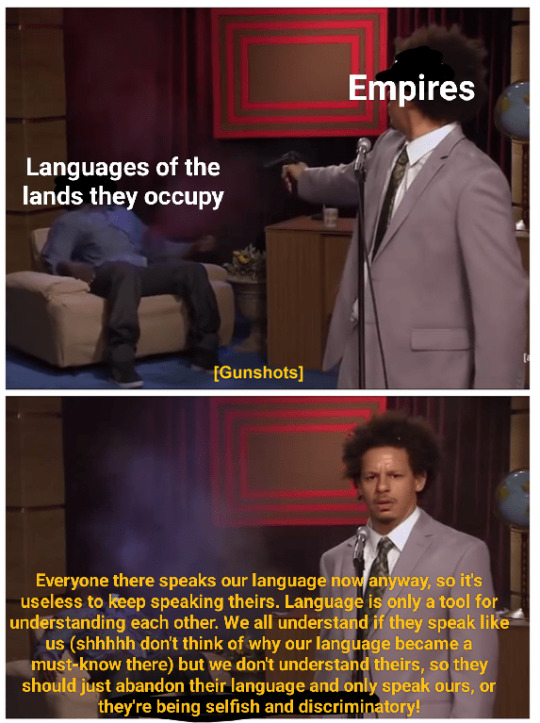
But besides these more social reasons, I like how Helena explains her personal relation to the language in this video. She also shows us one of the reasons why it's so important to promote discriminated languages to be used in public (and not only hidden at home): when you meet someone speaking a language, you form a bond with them in that language and it can be difficult to change. Speakers of minoritized languages often meet each other in contexts in which they're socially pressured to speak the state's language, and so we find the situation where a group of friends who are all native speakers of the minoritized language will form a bond in the state's language. Thus, slowly, because of the state's language imposition in the public sphere (this is what the "speak the state language if there's even 1 person who might not speak the local language! Languages are only a tool for communication!" mindset pushes us to), the local language gets pushed aside more and more, until we can't have a normal life in it and the state's language imposition becomes absolute, and the local language dies, taking with it its culture, history, and connection to the land and ancestors.
With some work, it can be reversed. I've explained this before but I'll say it again because it's relevant. My parents met in Spanish, because they met in high school and back then speaking Catalan in schools was strictly forbidden and punished. They were speaking in Spanish even when they started dating, but they realised how absurd it was that two native Catalan speakers spoke Spanish to each other and how it was a result of Francoist policy. They decided they don't want Francoism to infiltrate our personal lives, so they made the effort and switched. Maintaining the language of their surroundings, their culture, their land, they became even closer. And, thanks to their decision, when I was born I had the luck of being a native speaker of the language too, because it's what we've always spoken at home. But they did it because they had a political antifascist conscience, many people don't think much about it and just go with what is easier. If they had done that, the language would have lost them and also me. Multiply this for how many people meet each other in settings where social pressure or social rules promote speaking the imperial language instead of the local one that is closer to their hearts.
So no, a language is not only a tool to understand each other. It's also what allows us to speak according to our own understanding of the world (instead of assimilating into another's worldview), it gives meaning to our surroundings (both nature, the names we give to places, etc), every word is an unbroken chain with all of those who came before us, it allows us to understand our ancestors whether that be through their writing or songs they passed down or legends, it's an integral part of the human relations we establish, and so much more. Every language is worth everything. Every language has the right to exist and to thrive.
#llengua catalana#actualitat#sociolinguistics#minoritized languages#català#catalan#languages#langblr#cultures#anthropology#minority languages#diversity#cultural diversity#linguistics#lingblr#language revitalization
308 notes
·
View notes
Text
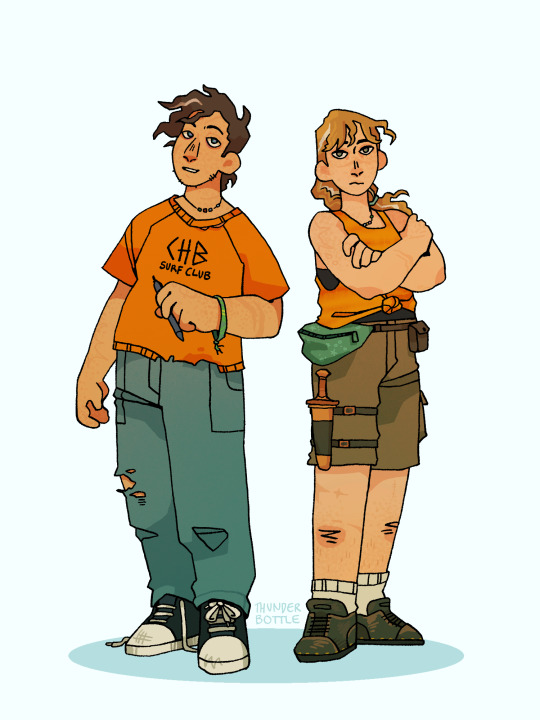
boyfailure and girlsuccess (book version)
#funnily enough i havent drawn these idiots since i was in middle school#but the oncoming show and the chalice of the gods book has revitalized me#theyre like ehhhhh 17 or 18 here. post second series.#percabeth#percy jackson#annabeth chase#pjo#fanart#art
1K notes
·
View notes
Text
Are you 18-35 years old and an activist or academic from a minoritized or minority language? This might interest you!
(And even if you don't meet the criteria but are interested in participating in another way, the organizers still encourage you to write to them!)
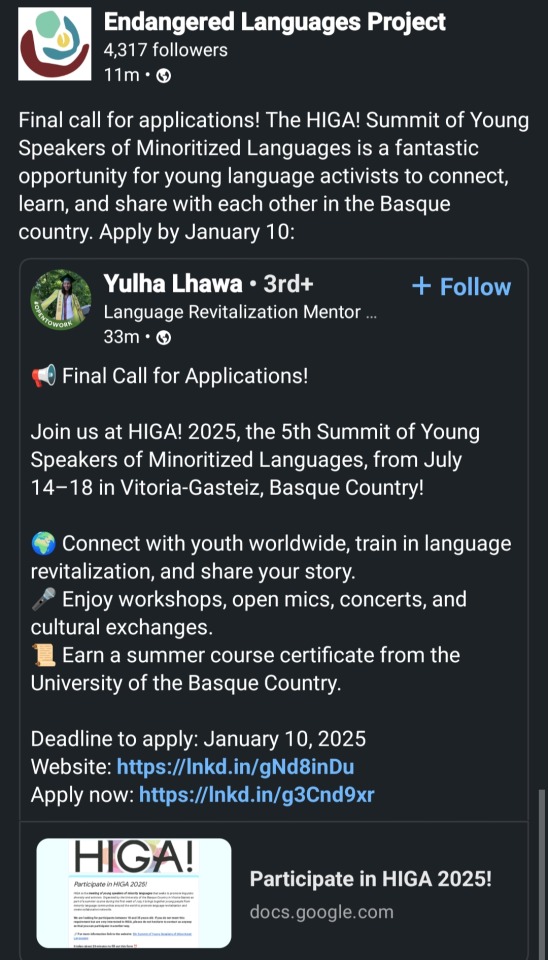
Website link:
#minoritized languages#minority languages#minorities#sociolinguistics#language revitalization#languages#langblr#lingblr#coses de la terra#indigenous#indigenous languages#internationalism#stateless nations#national liberation#💬
254 notes
·
View notes
Text
I ❤️ Herobrine

I just ADOREEE THE “From The Fog” Minecraft Mod so much y’all don’t even understand


#herobrine#minecraft#umm I think that’s all the tags actually 😭#minecraft mods#BOOM!!!#I love#From The Fog#it was the inspo for this piece bc of how much it revitalized my love for Herobrine HES SO COOLLL
120 notes
·
View notes
Text

pick your poison (timelapse under the cut!)
had a lot of fun drawing this !! Shennong especially :3 (no spoilers please I haven’t gotten super far yet)
#nine sols#nine sols Yi#nine sols shennong#I really want to draw Shuanshuan also#I love that kid#art#digital art#clownwithduncecap art#fanart#no but I’ve had artblock for soo long but then playing nine sols has revitalized me#I just whipped this out with no struggle at all#my art
138 notes
·
View notes
Text

they're judging you
+ random doodle dump

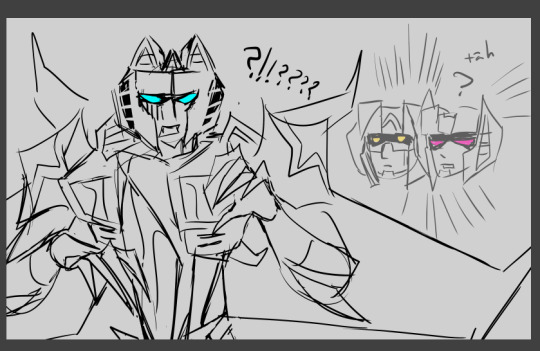

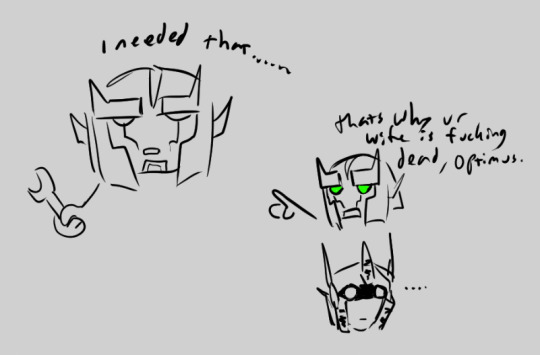


#the last one is a concept for a project for art school lmao#Transformers Revitalized AU#trashy art#maccadams#maccadam#megatron#optimus prime#starscream#thundercracker#skywarp#transformers au#transformers fan continuity#ratchet#tfp ratchet#tfp optimus prime#transformers prime#that tag is just bc of that dumb ratchet image#megop#opmeg#?#maybe#I dunno man they're in the same drawing does that count
2K notes
·
View notes
Text


(灬´ᴗ`灬)o 🍓🍰🍪🏠 some characters I designed based off of some super cute ceramic confectionery houses!
#this revitalized my fervor for character design#I’m redesigning some of my characters right now and aarghh getting in those lil details… it’s so fun yet painful..#if I make enough progress I’ll share some wips !! 🥹#character design#character art#digital art#my art#art#illustration#original character#mother garden#I would tag the brand swimmer but I don’t think it would be an accurate narrowed down tag 😭#beeb’s artbox ✿
488 notes
·
View notes
Text
Decades after being punished in a residential school for speaking his own language, Sol Mamakwa will hold the powerful to account at Ontario's legislature in the very same language past governments tried to bury. On Tuesday, Mamakwa, the only First Nation legislator at Queen's Park, will rise in the legislative chamber — with his mother, sister, brothers, friends and elders watching from the gallery — and ask a question in Anishininiimowin, known in English as Oji-Cree. For the first time in its history, the Ontario legislature will allow, interpret and transcribe a language other than English and French. It will also be a birthday gift to his mom, Kezia Mamakwa, who turns 79 that day, and a nod to his late father, Jerry Mamakwa. "Language is nationhood, language is identity, language is where history comes from and language is me and my people," Sol Mamakwa, a 53-year-old NDP legislator, said in an interview. "It's important because there's so many of us who are losing our languages. I think it's a step toward reconciliation and a step toward reviving our languages."
Continue Reading.
Tagging: @newsfromstolenland
376 notes
·
View notes
Text
me and the three other people still active in the dishonored fandom

#not as active as I once was but#can we get a new game to revitalize the fandom PLEASE I need to go back to 2016#my dh discord days…what a time#dishonored#dishonored 2#knifecrow
401 notes
·
View notes